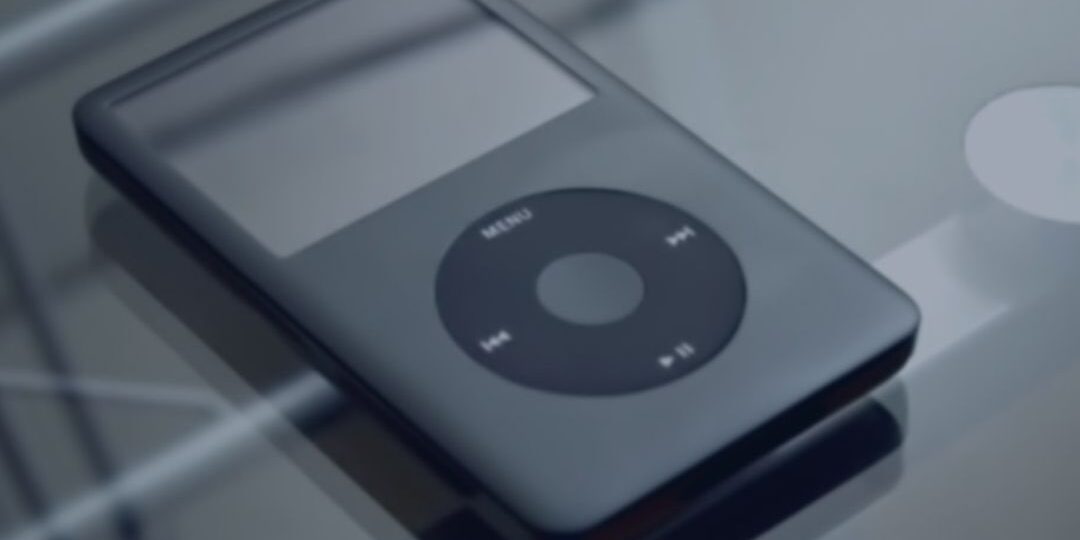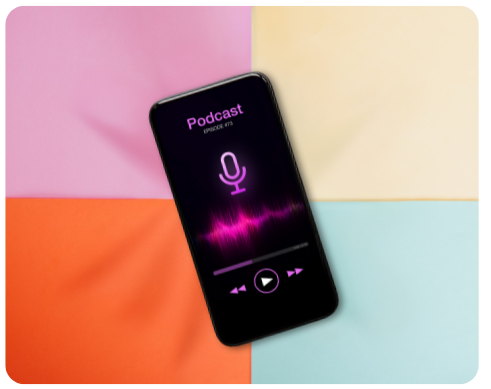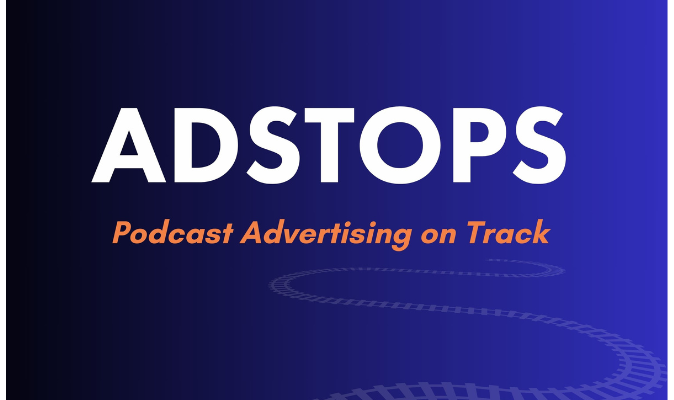
The MP3 Made Podcasts Possible
The MP3 was recently declared dead by its creators, although you wouldn’t know it in the world of podcasts.
Podcasting owes a lot of its success to the MP3 format. In fact, the current podcast industry probably wouldn’t exist without it.
Disclaimer: Podcasting has always had a broad landscape. Dozens (if not hundreds) of people contributed to its creation, adoption, and early success. This is the brief version of the history as it relates to the MP3, not the complete version of the story.
Before podcasts, the MP3 helped digital audio enter the internet age.
Digital audio has existed since the 1960s. The compact disc came of age in the 1980s. The modern era of digital audio–digitally transferred and unbound by physical media–didn’t begin until the 1990s.
For those who don’t know, the MP3 is a file format for audio compression. (MP3 stands for MPEG-2 Audio Layer III.) It can reduce a 60 Megabyte sound file into a file one-tenth the size (or smaller) depending on quality settings. Technically, it’s a “lossy” compression format–you lose some sonic quality, but it’s not noticeable to most.
MP3 technology was born in 1993 (the same year the World Wide Web became available to everyone). The relatively small file sizes that MP3 compression could produce made it easier to share audio files across the internet.
The original MP3 Encoder was released as shareware (like “freemium,” but for software you install). This allowed users to encode decent quality audio for free, but charged for higher quality encoding. (Of course, it wasn’t long until someone reverse-engineered the code and released an entirely free version.)
As the internet grew in popularity, so did the MP3. By the late 1990s, as internet speeds accelerated, it had become the online standard for audio.
However, its most common use was compressing CDs and sharing music without the artist’s permission.
The MP3 was Realer than RealAudio
At the same time, there was a streaming audio player named RealAudio that allowed anyone to stream live or on-demand audio through a dial-up internet connection. This inspired some people to start internet radio stations for both talk and music. The catch was the cost to purchase RealAudio’s encoding and server software and set up a website to do the streaming.
This limited early online audio broadcasts to mostly startups and media corporations.
By contrast, anyone could now create and distribute MP3s for free.
This could empower everyone.
The MP3 grew in popularity beyond music, which paved the way for podcasts
In addition to music files, an interesting subset of MP3 culture emerged: Talk radio fans shared unauthorized, home-taped recordings of popular radio shows, including The Howard Stern Show, Art Bell’s Coast to Coast, and Loveline with Adam Carolla and Dr. Drew.
It was clear there was a tech-savvy audience for spoken-word content.
In 1998, Nullsoft released a free streaming plugin named Shoutcast for its popular WinAmp MP3 software. It used the MP3 codec to compress and stream audio in real-time over the internet.
With Shoutcast, anyone with a computer and an internet connection could live stream high-quality music and talk via a personal online radio station.
It wasn’t long before budding broadcasters started to stream and record online radio shows via Shoutcast and also make them available as MP3s for download. A small handful of lecturers, comedians, and storytellers started to do the same.

The MP3 goes portable
1998 was also the year that standalone MP3 players hit the market. That meant people no longer needed a computer for playback, and we could take our MP3s with us.
In the years that followed, these players grew in popularity. Apple’s iPod became a massive success upon its release in 2001. Bands and record labels started to release official MP3s for purchase, offering a much- needed alternative to piracy.
Some forward-thinking talk radio shows and stations also started to offer official recordings of their shows for download.

RSS Enables Subscribing to Podcasts
Even though you could download these files and sync them to your MP3 player, there wasn’t any automation or ability to subscribe. Dave Winer, author of the RSS format, worked with Adam Curry and others to expand the capabilities of automated feeds. At the time, the preferred term was “audioblogging,” a name that thankfully didn’t catch on.
Due to their work (and the work of others), original spoken-word MP3 content really took off in 2003, and podcasting matured into a named format in early 2004.
It took awhile, but Podcasts made a name for themselves beyond the MP3
The term podcasting was first mentioned by Ben Hammersley of The Guardian in a February 2004 article. (“Podcast” is a mash-up of iPod and broadcast.)
Adam Curry’s Daily Source Code podcast started in 2004. Leo Laporte’s This Week in Tech released its first episode in 2005. Thousands of independent podcasters began creating content.
Due to popular demand, iTunes began listing and offering podcasts in June of that year. “Podcast” was even named the New Oxford American Dictionary’s Word of the Year for 2005.
Podcasts have grown, but they haven’t outgrown the MP3
Currently, more than 1 in 5 Americans have listened to a podcast within the last month (according to Edison Research’s 2017 Infinite Dial study). While formats like AAC (Advanced Audio Coding) offer superior audio quality at a slightly smaller file size, most podcasters still release their podcasts as MP3s.
Furthermore, support for MP3 playback exists on virtually every device. There is also a seemingly infinite amount of content already in the format that people listen to on a daily basis.
Meanwhile, podcasts remain an independent medium. Major broadcasters may have taken notice–and small and mid-size companies may have grown out of the movement–but podcasting is still dominated by small podcasters. The most popular podcasts come from a variety of sources, from one-person with a microphone to the New York Times.
I truly believe this would not have happened if RealAudio (or something of comparable cost) had caught on and become the standard.
The MP3 was a gamechanger and a democratizing piece of technology. It allowed anyone and everyone to compress audio into an easily transmitted format and distribute it worldwide.
Even with this hype about its supposed “death,” the MP3 and more importantly, what it’s come to represent, aren’t going away.

Glenn Rubenstein
Glenn Rubenstein is the Founder and CEO of ADOPTER Media. Since 2007, he's helped brands engage online audiences through authentic advertising.

